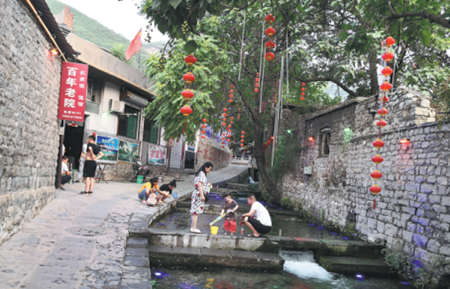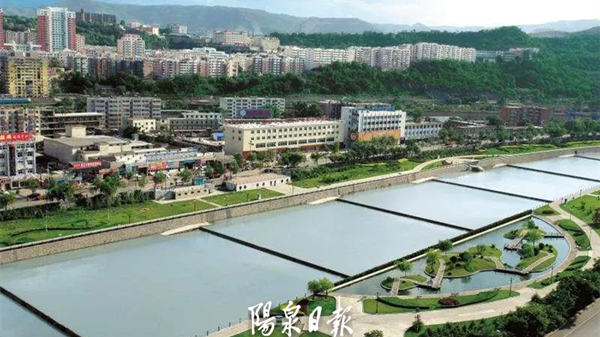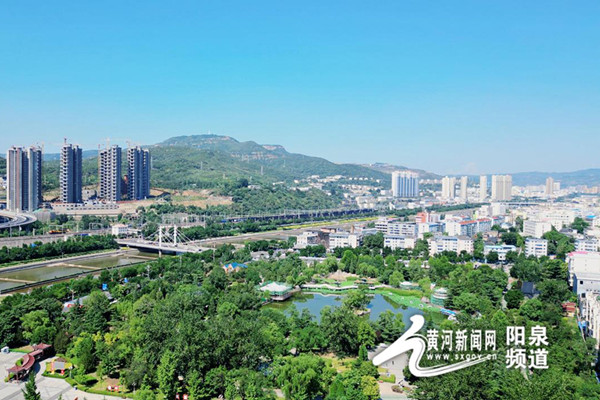Niangziguan makes a splash with radical redevelopment

The glass sky-bridge in Niangziguan town [Photo by Sun Ruisheng/China Daily]
Environment plays vital role in developing local tourism in this water town
A booming tourism trade and cleaner environment has changed life for the better in a northern water town.
Guests have been returning to Shuai Zhongcheng's homestay in Niangziguan town since late March, when the local coronavirus outbreak was brought under control.
Even though the pandemic halted tourism, Shuai said he had not worried too much.
"It had to be temporary," Shuai says, adding that his confidence partly derives from local government's input in tourism development and his fellow townspeople's increasing awareness to improve environmental conditions.
The town in northern China's Shanxi province is known for being a significant pass on China's Great Wall. It was named after Princess Pingyang, the elder sister of Tang Dynasty (618-907) emperor Li Shimin. She used to guard the pass as a general.
Tourists have flocked to the town for its history and mountainous landscape.
Shuai's residence, along with roughly 100 others in the neighborhood, was built above one of more than 30 underground water sources. Hence, the public has named local households the "clan above water" over time.

Water flows below the stone walls of houses and a waterfall splashes off the mountain in the town. [Photo by Sun Ruisheng/China Daily]
Water flows below the stone walls of houses and a waterfall splashes off the mountain in the town.
"We've mostly been fully booked on weekends and major holidays over the past few years," Shuai says.
The 46-year-old quit his old job of coal transportation two years ago. "The money was not good and the business was nerve-wracking," he says.
"I had to keep my phone open all the time, hoping no one would call me, especially at night, to report accidents on the road."
As the country has continued to tighten environment protection requirements, Shuai's coal transport business was on the wane.
Then, he began to notice sporadic groups of tourists coming to visit Niangziguan.
"There were only a few small homestays, which couldn't meet visitors' needs," he says.
"And bad smells often arose from unsightly trash piles here and there."
The situation was transformed in 2016, when the local government stepped up their efforts to boost tourism development.
Illegal structures were removed, trash was processed, toilets of a modern standard were opened, all of which have given Niangziguan a facelift.
Sensing an opportunity, Shuai took the plunge in 2017 and invested about 1 million yuan ($141,329) transforming his old farmhouse into a homestay, which also provides local cuisine.
Since then, Shuai has enjoyed much success. His business received more than 10,000 visitors in 2019.
Most of the tourists come from Shanxi and Hebei provinces. The rest are from other parts of the country, Shuai says.
Now, he plans to rent another building in the town to expand his farmhouse business.





